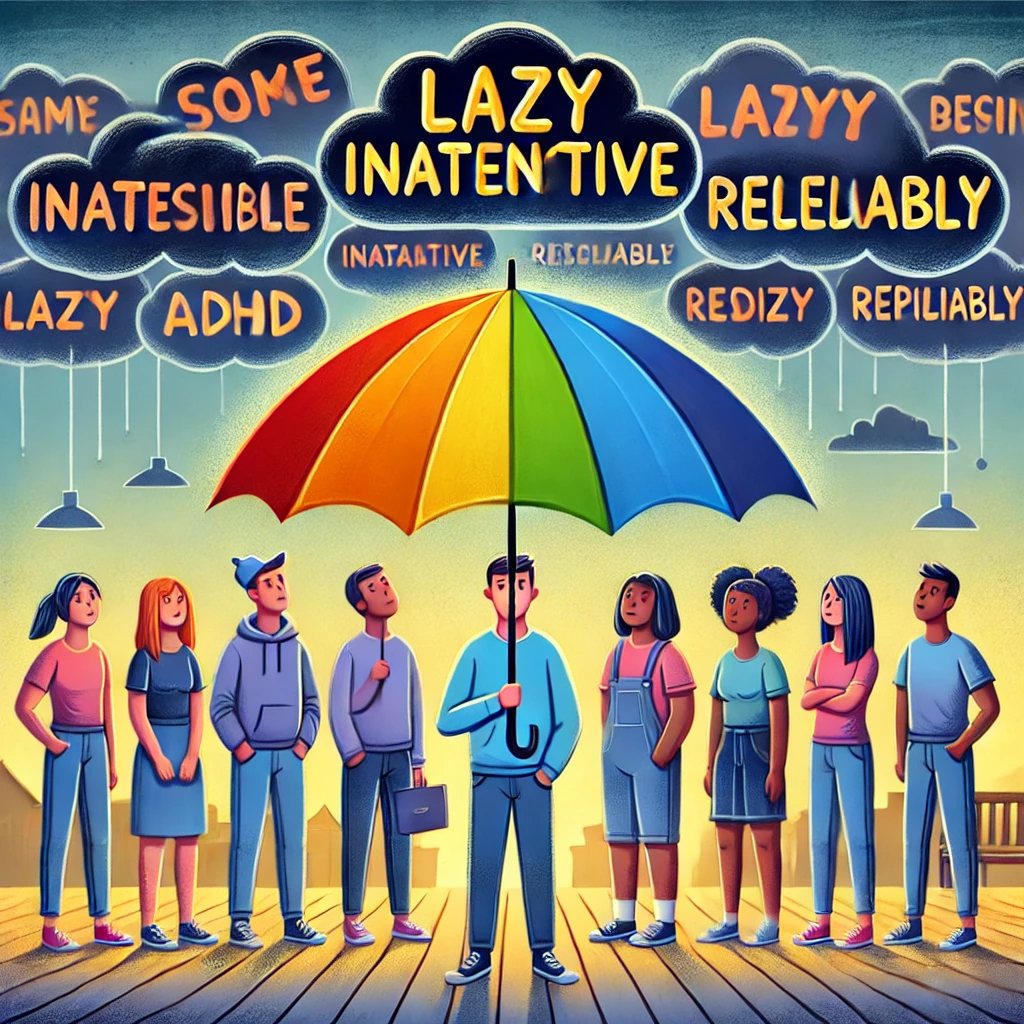Understanding Social Stigma and ADHD
Understanding Social Stigma and ADHD: Creating Inclusive Environments
In this post, we explore the relationship between social stigma and ADHD, addressing common misconceptions, the effects of stereotyping, historical views on ADHD, and the personal impact of social stigma on individuals with ADHD. We'll also discuss strategies to dismantle stigma and our specific efforts at Kristen McClure Therapist to support women with ADHD.
Exploring the Realities of ADHD in Society

ADHD, or Attention Deficit Hyperactivity Diversity, is a neurodivergence affecting individuals across all age groups. Commonly misunderstood, ADHD is often misrepresented, contributing significantly to social stigma.
Common Misconceptions about ADHD
ADHD as an excuse for laziness: A common myth is that ADHD is just an excuse for being lazy or unmotivated. Instead, ADHD represents a unique neurotype that often doesn't align well with conventional societal expectations, impacting focus and behavior regulation.
Persistence of ADHD into adulthood: Many assume ADHD is solely a childhood condition, but it often extends into adulthood, affecting relationships, employment, and daily management.
Limiting ADHD treatment to medication: While medication can aid symptom management, various strategies like behavioral therapy, lifestyle adjustments, and supportive accommodations are also vital for thriving with ADHD.
Impact of Stereotypes on Perception
Stereotypes often paint individuals with ADHD as inattentive or incapable, fostering shame and low self-esteem. This stigma can deter people from seeking necessary support or sharing their diagnosis, fearing judgment.
Historical Perspectives on ADHD and Stigma
From its early description as a "hyperkinetic disorder" to its modern understanding as a neurodevelopmental condition, ADHD's perception has evolved significantly. Increased awareness and education have shifted societal views towards more inclusive attitudes, supporting better inclusion in education and employment.
Personal Impacts of Social Stigma on Individuals with ADHD
Social stigma can profoundly affect those with ADHD, impacting their performance in work and academic settings:
Workplace Challenges:
- Misunderstandings about ADHD can lead to workplace difficulties, where others may misinterpret the abilities and work ethics of those with ADHD.
- Discrimination may occur, with potential overlooks for promotions or opportunities due to biases.
- Time management challenges, stemming from ADHD symptoms, can affect productivity and deadlines.
Academic Challenges:
- Students with ADHD might face stigmatization from peers, impacting their social interactions and academic success.
- A lack of supportive accommodations can hinder academic achievements.
- The ongoing stigma can damage self-esteem, influencing overall well-being.

Strategies to Combat Stigma in Everyday Life
Educating friends and family, advocating through campaigns, and sharing personal stories can help shift public perceptions and decrease stigma. Active involvement in awareness efforts and community advocacy can foster greater understanding and acceptance.
Supporting Women with ADHD at Kristen McClure Therapist
We focus on empowering women with ADHD to navigate social stigma, offering tailored therapeutic approaches to build resilience and challenge societal norms. Our initiatives include:
- Providing resources for self-advocacy and assertiveness.
- Facilitating support groups to share experiences and coping strategies.
- Collaborating with community organizations to educate and reduce stereotypes.
Conclusion
Addressing social stigma and ADHD is vital for fostering an understanding and supportive community. Together, we can advocate for change and support individuals with ADHD in leading fulfilling lives.



